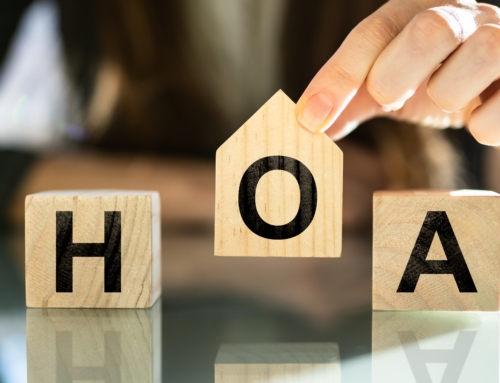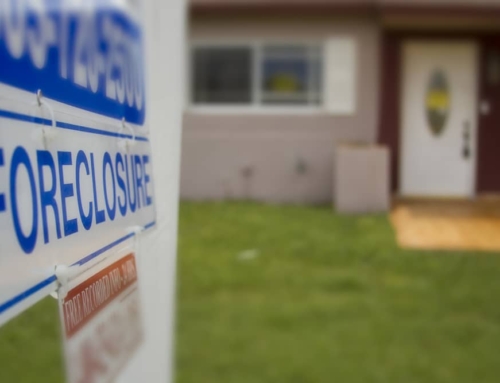Q: A few years ago I bought your wonderful book “100 Questions Every First-Time Home Buyer Should Ask” and it’s the best book I’ve ever seen of its kind. I call it “the Bible of First-Timers” and have recommended it to many first time buyers.
This book also made me realize that having a great credit score (above 800) does not help much when one does not earn a lot of money and thus has no money to put down either for a down payment.
I don’t want to continue renting and really would love to be able to buy something but I’d rather you tell me, based on a few facts if I should buy or just forget about it.
I live in Miami, only make $30,000 annually and don’t have a lot of money for a down payment. But my credit score is over 800 and I’m self-employed. I know there are many programs for first-timers and the local government also has some programs to help first-timers and low income people but I don’t know where to start.
A: Your question is quite timely. Congress recently passed a Housing Bill that could help some first time buyers buy a home. Some of the recently passed legislation could help people like you. But first, you need to take a close look at your finances and make sure you can afford to buy a home.
In the last several years, people making $50,000 bought homes worth $500,000. Those home purchases never made sense and still don’t make sense. You need to determine how much money you can afford to spend on housing and then figure out if there are homes available in your price range.
Historically, lenders usually counseled buyers that they could not afford to buy a home if the price of the home exceeded about two and a half times their annual income. In your case, that would mean you would have to look for homes that would cost $75,000 or less. But with lower interest rates, a lender may allow you to buy a home that costs three to three and a half times your income, or up to around $100,000.
In addition, lenders usually counseled buyers that their housing expenses and other debts should never exceed 36 percent of their take home pay. In your case, you shouldn’t want to pay more than $10,800 per year for all of your housing expenses, property taxes, insurance and other debts.
After reviewing your financial information, if you decide to proceed to buy a house, you may find a little help with the Housing Bill.
The Housing Bill allows first-time buyers (classified as individuals who have not owned a home in the last three years) to take up to a $7,500 tax credit in the year they close on their first home. A tax credit is a dollar-for-dollar reduction in the amount of taxes you’ll pay to the IRS. But the first-time buyer doesn’t actually see that money unless they file their tax return in 2009 for their 2008 federal income taxes and they get a refund. Otherwise, the first time buyer sees the credit as a reduction in the amount of federal income taxes he or she would have otherwise have paid to the government.
While you’ll reduce your taxes in the first year, you’ll have to pay back the $7,500 to Uncle Sam over 15 years. So what you’re really getting is an interest-free loan with generous repayment terms.
In this real estate market, the other bit of good news is that FHA loans only require a 3 percent down payment. So while many lenders may require higher down payments, FHA loans are still available. They may cost more, but a person with little money to put down could still buy a home.
So if you purchase a house for $100,000, you would have to scrape together $3,000 for the down payment plus some extra for reserves.
But one option that is no longer available is using a third-party non-profit to set up a seller-funded down payment. In other words, a buyer in your situation could have bought a home without putting any money down. The down payment would have come from the seller through the non-profit housing company. But the Housing Bill has eliminated these seller-funded down payments, since so many seller-funded down payment loans have gone belly up.
Interest rates are still historically low, at less than 7 percent for a 30-year fixed rate mortgage. If you put down less than 20 percent, you’ll have to get private mortgage insurance (PMI), or pay the FHA’s 1.5 percent mortgage insurance fee each year.
Although there are extra costs when you don’t have at least 20 percent to put down on your home, housing prices have fallen substantially in most metropolitan areas around the country, some areas more than others. There are great deals to be had these days (especially in places with a large inventory of unsold condos, like Miami), and even folks who earn $30,000 per year might be able to afford to buy a piece of property because of the depressed prices.
I encourage you to find a real estate agent you can trust and start to look at neighborhoods with good school districts, plenty of shopping and transportation networks that are close to your friends, family and house of worship (assuming you have one). You’ll also want to find an excellent mortgage lender who can help you with your planning and you need to make sure that you can live comfortably with the costs involved in owning a new home and as these costs increase over the years.
As the recent housing market shows, it can be easy to buy a home but if the market turns, homes can be difficult to sell in some markets.
The housing bill also provides some extra funds for cities and states to use to encourage housing. Contact your local housing authority to see if it is going to offer below-market loans or start other housing programs to aid local residents of modest means.
Good luck, and let me know how it goes.
Aug. 7, 2008.






Leave A Comment